Human Factors in Extra-Vehicular Activities:
The term extra-vehicular activity (EVA) collectively refers to all jobs performed by an astronaut in space outside the spacecraft, including work on space stations and the moonwalks of the Apollo astronauts (sometimes also referred to as lunar extra-vehicular activity (LEVA)). EVAs are considered dangerous because the astronaut has to leave the (relatively) safe environment inside the spacecraft and enter the vacuum of space with only a spacesuit for protection. For various reasons, astronauts are exposed to high levels of physical stress in such situations. Stress factors include exposure to the loud noise of the spacesuit’s built-in air-conditioning system, highly restricted movement due to the suit’s stiffness and a highly restricted field of vision due to the helmet.
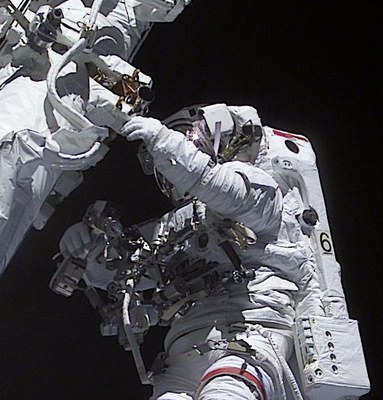
Astronauts leave their spacecraft
- in order to leave or retrieve measuring instruments, e.g. in order to measure micrometeorites,
- for installation or repair jobs, e.g. on the ISS or on the Hubble space telescope,
- for scientific reasons,
- for testing new methods.
Astronauts leave and enter their spacecraft through an airlock.
Preliminary Work at the Institute of Human Factors:
###
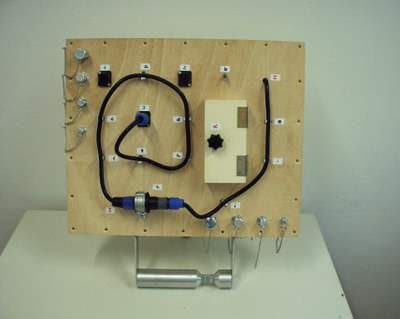
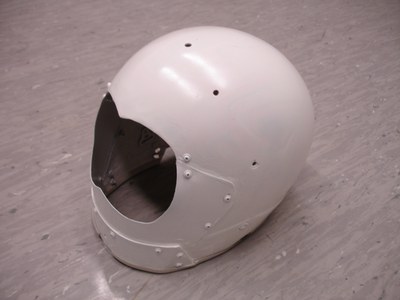
###
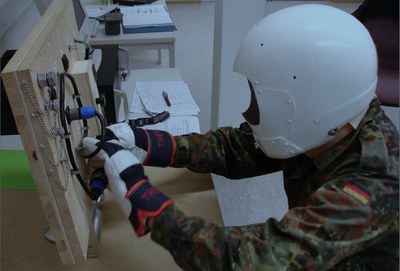
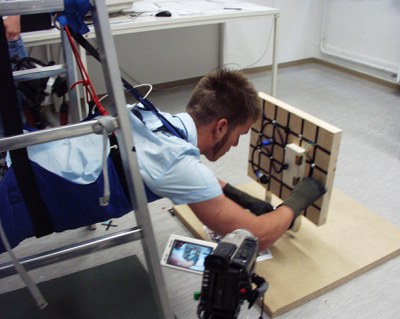
###